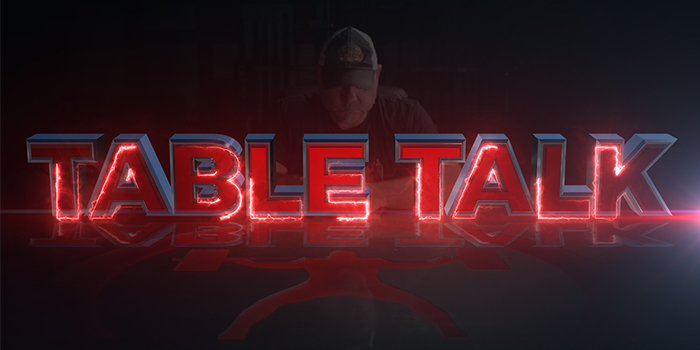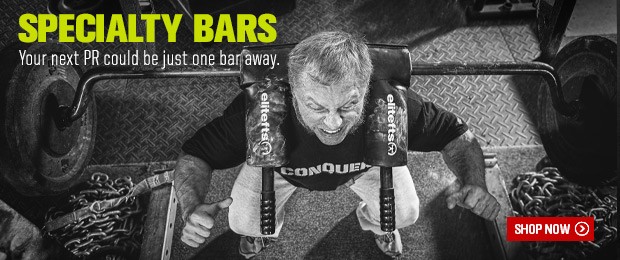
If you want to make it for the long haul in serious training, you're going to have to learn to make adjustments in your program and your approach. Someone like Dave, who has been training his entire life, has made a lot of adjustments over the years. For today's Table Talk video, Dave answers a question about the specific changes he has made as he's nearing 50 years of age:
"Have you modified your own training now that you're nearing 50?"
Since Dave retired from powerlifting in 2005, he's modified his training many times, in many ways. He's tried bodybuilding phases where he's gotten very lean, which were enjoyable for the training but miserable for the dieting. He's tried training designed for general life well-being, which he hated because it made him feel better during the day but ruined the actual act of training. He's tried strength-based phases of training as well, which is what he does now and what he prefers.
In these phases of training for strength, Dave says he spends part of the year on bodybuilding style training, and then switches to a preparatory or transition phase that is designed to get him ready to train heavy again. After completing his preparatory phase ("trying to get to the starting gate", he calls it) Dave picks an exercise that he can do relatively safely for a one-rep max. The next phase of his training is spent trying to work to break an all-time PR on it. For these exercises, instead of a competitive squat, bench, or deadlift, he uses movements such as an SS Yoke Bar squat or a deadlift with chains. This type of training is Dave's preferred style, he says, because it allows him to train hard and push his all-time PRs on certain exercises, despite the fact that he'll never compete in powerlifting again. He's able to work toward these objectives and still maintain some balance in his training.
For other lifters who are around the same age, you can consider any of these options or try your own variations, but Dave says the key is to keep coming to the gym. The older you get and the more beat up you get, you just have to keep showing up, no matter how fucked up you may be. Even if you do almost nothing once you make it to the gym, you'll have the habit and you'll have a starting place for when you're really ready to fully come back.










